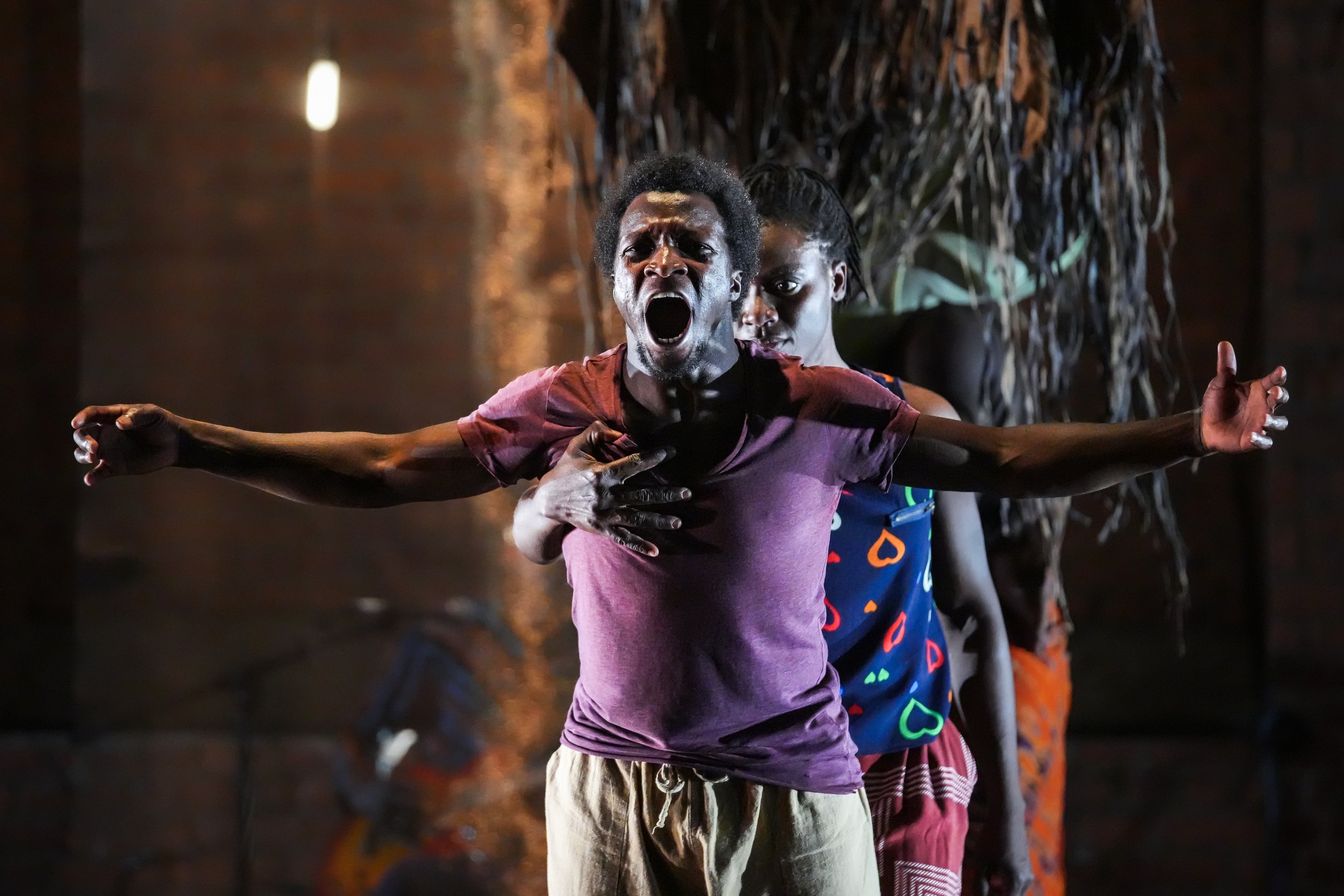Choreographer and Composer Olivier Tarpaga (USA/Burkina Faso): Translating Emotion to Movement
Olivier Tarpaga, Once the Dust Settles, Flowers Bloom. The performing cast of Dust finds moments of vulnerability. Photo by Steven Pisano
Olivier Tarpaga’s Mission
Oliver Tarpaga does it all: he is a dancer, choreographer, musician, composer, and storyteller. For over 20 years, he has produced invigorating theater works. Although he sources inspiration from his ancestral home of Burkina Faso, his work is not limited to raising cultural awareness. His choreographic innovation derives from his preference for emotion over story. He stages works relating to global politics, but difficult topics do not read like storybooks. Tarpaga intentionally blurs the clarity of movement and story, encouraging self-immersion rather than understanding. Deeper than comprehension, he designs his work to be an experience.
About Tarpaga
Olivier Tarpaga emerges with an unparalleled reputation in the arts. He is a co-founder of the Baker & Tarpaga Dance Project and the founder, artistic director, and composer of Dafra Drum (traditional Manding music) and Dafra Kura Band (contemporary African acoustic music). Including international tours, he teaches dance and music worldwide. He currently serves as a lecturer and director of the African Music Ensemble at Princeton University, previously working at Ohio State University as a professor, director, and performing arts consultant. Highlighting his most prominent works below, Tarpaga is known for creating emotional journeys, adding depth to the often stoic headlines of global tragedy.
When Birds Refused to Fly (2019)
Merging African independence movements and the United States Civil Rights Movement, Tarpaga's message transcends geography to express the complex emotions in the face of oppression. Sole female dancer Salamata Kobré delivers a powerful reminder through swift, explosive movement: women stand tall through unwavering identity, resilience, and sensuality. The cast comprises three more dancers as men explore the societally suppressed depths of masculinity. Effortless rhythm and expansive movement with ease speak to gentleness and vulnerability. As a group, they groove and stride as an ode to collective strength and healing.
Declassified Memory Fragment (2015)
Revealing African culture, Tarpaga addresses unspoken complexities of everyday life: societal expectations, politics, and secrecy. From Burkina Faso, the all-male cast authentically channels the desperation and beauty of scarce connection. Unpredictable choreography conveys the unreliable nature of companionship within Africa’s pervasive politics. Haunting silence with stillness, close-knit physical contact, and bouts of eruptive energy create a bold yet poetic display of friendship. Blending moments of humor and hurt, Tarpaga uses choreographic whiplash as a thematic device: when one door slams shut, another one rips open.
Once the Dust Settles, Flowers Bloom (2023)
Olivier Tarpaga, Once the Dust Settles, Flowers Bloom. Olivier Tarpaga adds nuance to movement through props. Photo by Steven Pisano
Dust debuted at the Joyce Theater in Manhattan on October 3, 2023. When Tarpaga’s home country, Burkina Faso, had been invaded by aggressive jihadists, he investigated the city of Kaya, his birthplace. After discovering that Kaya serves as a refugee camp for women and children, Tarpaga sought to bring attention to the tragedy of gender-based violence within religious extremism and to displacement. Once the dust settles, flowers bloom inspires empathy and understanding by portraying the humanity, strength, and hope in womanhood.
Inspiring empathy, Tarpaga contrasts the desperation and pain of tragedy with the hope and perseverance of womanhood. Women and men at political odds unite through passionate symmetry, partnering, and unison, which obscures the contextual narrative. Tarpaga crafts an emotional journey beyond the gender divide to prompt reflection rather than understanding. An explanation does not convey tragedy. Emotion does.
The Audience’s Sublime Human Experience
Tarpaga’s choreography and exceptional dancers portray emotion rather than plot. His restraint from easy interpretation encourages his work to speak for itself. Tarpaga effortlessly translates vulnerable scenes from behind closed doors into choreography, holding us accountable for what we see.

